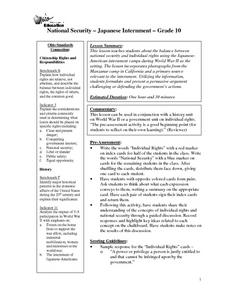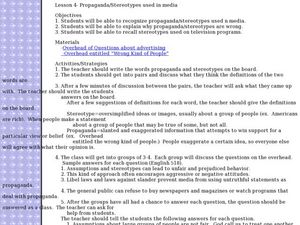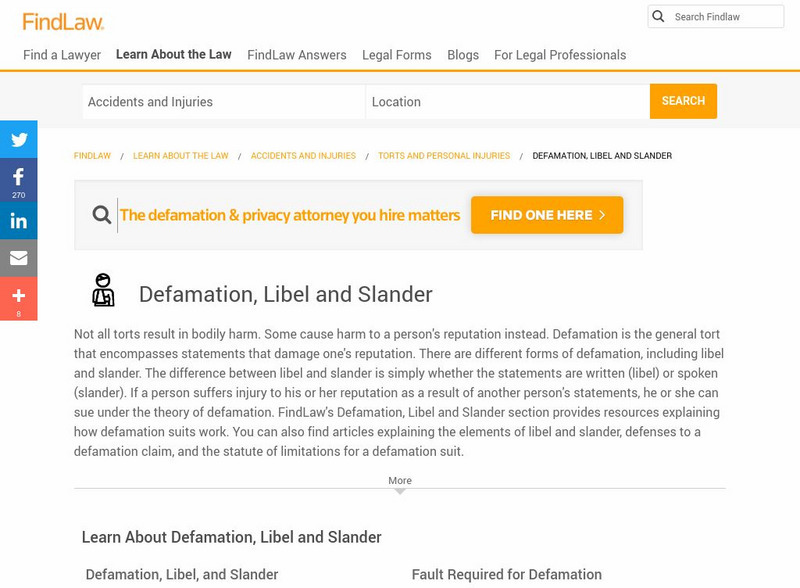Curated OER
What are the benefits of having a Free Press?
Students examine why actual malice is necessary in libel cases. Students demonstrate the importance of a third party in libel and slander cases. They analyze why a free press is essential in American society.
Curated OER
National Security - Japanese Internment
Tenth graders investigate the balance between national security and individual rights using the Japanese American internment camps during World War II as the setting. The lesson incorporates photographs from the Manzanar camp in...
Curated OER
Researching American Democracy
Students compare Watergate and the Clinton/Lewinsky scandal. In this U.S. Constitution instructional activity, students define vocabulary terms and read articles regarding the impeachment process. Students respond to questions that...
Curated OER
Propaganda/Stereotypes Used in the Media
Students write a character sketch on a television character who they feel is a stereotype. In this propaganda/stereotype lesson plan, students discuss the definition of the terms and ways that the media uses both. Students relate the...
Curated OER
The Bill of Rights
Seventh graders determine why the Bill of Rights was added to the Constitution. In this U.S. government lesson plan, 7th graders discuss the first 10 amendments and any vocabulary they may be unfamiliar with. Students then read different...
Thomson Reuters
Find Law: Defamation, Libel, and Slander
An introduction to the legal definition of defamation.
Other
Law School help.com: Torts: Defamation
Learn about defamation, "An invasion of the interest in reputation of a person or a group of persons resulting from libel or slander." This website provides definitions of both libel and slander, and addresses the role of defamation in...
Wikimedia
Wikipedia: Defamation
Learn what defamation is, and explore the legal differences between slander and libel. Other concepts include "false light" and "absolute privilege." Also looks at legal defenses used and defamation laws in other countries.









